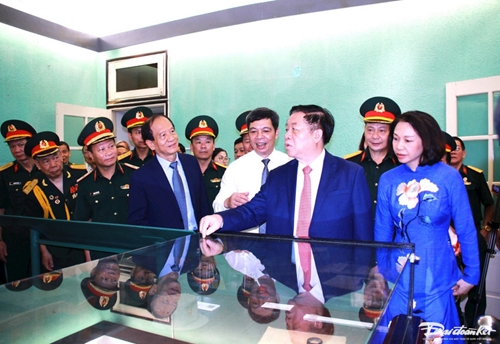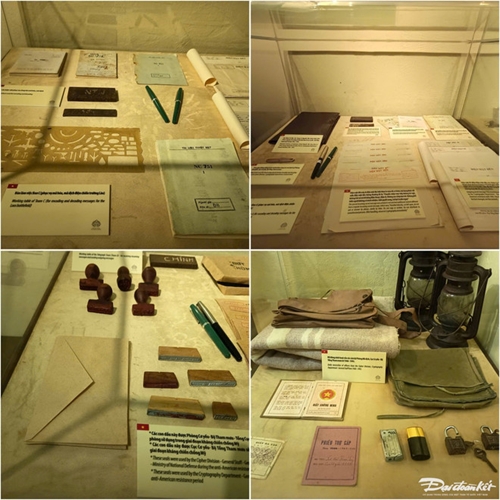August 20, 2025 | 22:52 (GMT+7)
Historical relics spotlighted at special displays in Thang Long Imperial Citadel
A series of special exhibitions is underway at the Thang Long Imperial Citadel heritage site in Hanoi to mark the 80th anniversary of the August Revolution (August 19, 1945 - 2025) and National Day (September 2, 1945 - 2025).
At the opening ceremony on August 19, Nguyen Thanh Quang, Director of the Thang Long – Hanoi Heritage Conservation Center, noted that the central sector of the citadel not only safeguards vestiges of millennium-old history but also revolutionary relics and “red addresses” that nurture the patriotic tradition such as House and Tunnel D67, the Cryptographic Bunker, and the Hanoi Flag Tower.
    |
 |
|
Officials visit House and Tunnel D67, a site of great historical significance from the Ho Chi Minh era. (Photo: daidoanket.vn) |
The displays bring history to life, recalling glorious milestones and honoring generations of heroes and martyrs who sacrificed for independence and peace. The stories told here serve as an enduring source of inspiration for national pride and patriotism, Quang said.
The exhibition on House and Tunnel D67 presents more than 300 documents and photos. This site is tied to the strategic decisions made by the Politburo and the Central Military Commission during the resistance war against the U.S., contributing to the South liberation and national reunification.
Besides, the restored Cryptographic Bunker of the General Staff was officially opened to the public. Built in 1966, the facility played a vital role in enabling the General Headquarters of the Vietnam People’s Army to maintain command and control amid heavy U.S. air strikes on Hanoi.
    |
 |
|
Several artifacts on display inside the Cryptographic Bunker (Photo: daidoanket.vn) |
From September 1, a new exhibition on the Hanoi Flag Tower will open, tracing over 200 years of history of this military architectural landmark from the Nguyen Dynasty and the French occupation to the Capital’s Liberation Day on October 10, 1954. Through artifacts, documentary films, and chronological displays, visitors will relive the historic moments when the red flag with a yellow star flew atop the tower, a lasting symbol of independence and the Vietnamese people’s aspiration for peace.
Source: VNA